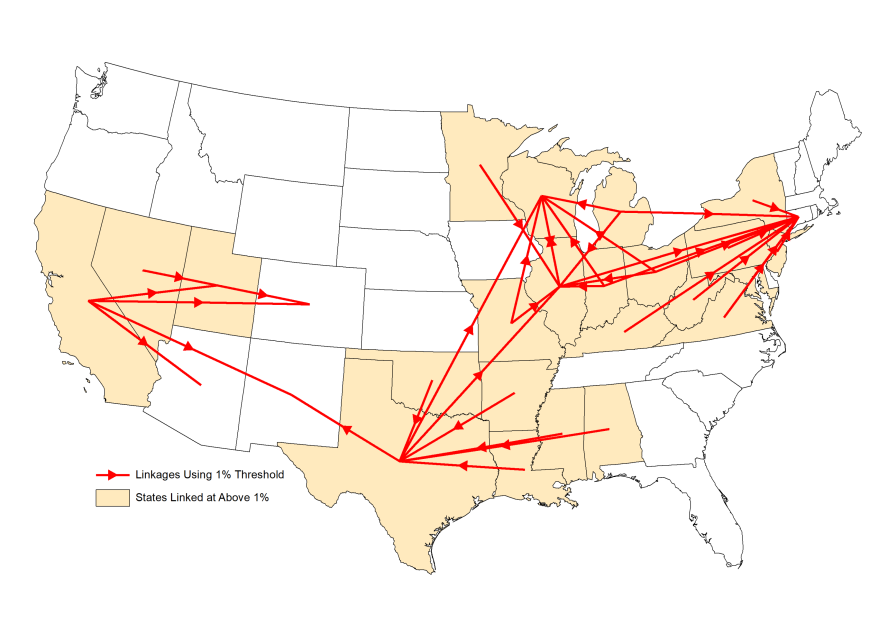The federal Good Neighbor Plan aims to curb nitrous oxide, or NOx, emissions. These create low-lying ozone smog that causes and exacerbates lung problems like asthma. The EPA says reducing NOx emissions will save thousands of lives and improve health and quality of life for millions of people living downwind of industrial smog sources.
The plan aims to enforce federal air quality standards set in 2015. It covers 23 states, including Oklahoma, that were found to be exporting significant amounts of smog to downwind neighbors.
In Oklahoma’s case, those NoX emissions are making their way to residents in Texas, especially the Dallas/Fort Worth area. The plan doesn’t identify any states with significant NoX emissions that reach air quality sensors in Oklahoma.

Last year, smog-exporting states proposed plans to reduce their NOx emissions. Early this year, the EPA rejected proposed plans to cut NOx emissions from 19 states, including Oklahoma.
According to the EPA, the Oklahoma Department of Environmental Quality’s proposal did not contain any permanent and enforceable emissions controls. Federal reviewers said there wasn’t sufficient evidence that the state had already implemented all cost-effective options like the proposal claimed. In lieu of an approved state proposal, the EPA said it would implement a federal implementation plan.
After the EPA released its final plan in March, Oklahoma Attorney General Gentner Drummond announced that he had filed a lawsuit against the EPA for its rejection of Oklahoma’s implementation plan, calling the federal plan “overreach of the first order.”
On Thursday, the 10th Circuit Court of Appeals granted Oklahoma a stay while that case is decided. The state will not have to implement a federal smog reduction plan for now, and Drummond says he’s hopeful the court will eventually decide in his favor.
“I am thankful the Court granted a stay, which temporarily protects Oklahoma businesses and consumers from the EPA’s overreach," Drummond said in a statement.
The Attorney General announced another move in support of curbing federal regulatory power on Thursday. The U.S. Supreme Court will soon consider a case about herring fishing companies required to hire an onboard monitor to ensure their compliance with federal regulations. The case, Loper Bright Enterprises v. Raimondo, will test a longstanding legal precedent — in disputes about ambiguous laws, courts have historically deferred to federal regulatory agencies’ interpretation of the law.
This precedent is known as the Chevron deference, named for a 1984 Supreme Court case called Chevron v. Natural Resources Defense Council. The Court ruled in Chevron’s favor by upholding a Reagan administration interpretation of a pollution law, setting the stage for courts to defer to federal agencies during disputes.
Today, Drummond joined 26 other conservative-leaning states in asking the Court to use the herring fishing case to topple that precedent.
“The Biden Administration seems to have no limit on the amount of costly regulation it is willing to wield against American job creators,” Drummond said in a press release. “I am thankful the Supreme Court has agreed to hear this important case, and I am hopeful their eventual ruling will provide much needed clarity and common sense.”
The Court announced it would hearLoper v. Raimondo earlier this year. Its decision could have implications for all federal regulations, not just environmental ones.







